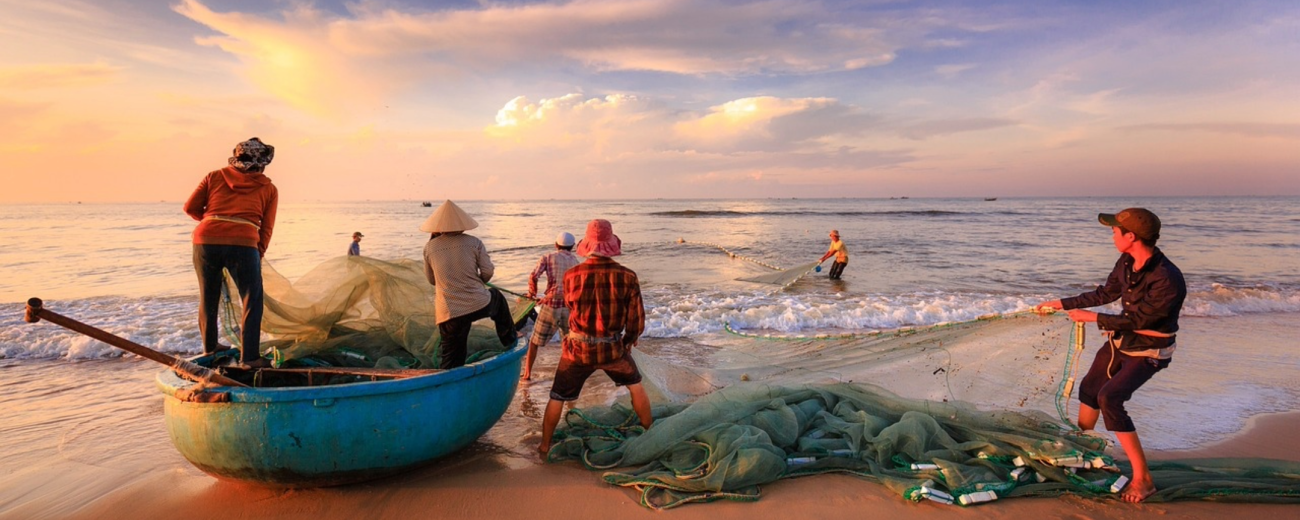
Modern slavery in the fishing industry

Key information
- Date
- Time
-
4:00 pm to 7:30 pm
- Venue
- SOAS, University of London
- Room
- Djam Lecture Theatre (DLT)
About this event
Modern slavery is a complex global phenomenon involving several regimes of law, including migration law, labour law, criminal law, and human rights law.
Even more so when it occurs at sea, where people are “out of sight, out of mind” (International Transport Workers’ Federation, 2006). Workers in maritime sectors, especially in the fishing industry, are frequently exposed to very extreme weather conditions, are subject to the unpredictability of the ocean, and further isolated from any forms of protection on land often for very lengthy periods.
In addition, people working in these sectors are frequently migrant workers: they are marginalised due to structural socio-economic injustice, and may easily fall victims to criminal activities within the global supply chain.
With this in mind, Dr Andrea Longo hosts a panel of experts and a stakeholder roundtable with a view to unpacking some of the legal aspects and complexities underlying the phenomenon of modern slavery in the fishing industry.
Panel of experts
- Michelle Staggs Kelsall, Senior Lecturer in International Law, SOAS, University of London (chair)
- Parosha Chandran, barrister and Professor of Practice in Modern Slavery Law, King’s College London
- Virginia Mantouvalou, Professor of Human Rights and Labour Law, University College London
- Irini Papanicolopulu, Professor of International Law, SOAS, University of London
Stakeholder roundtable
- Luningning Camoying Valdez, Diplomatic Mission of the Republic of the Philippines, UN Human Right Council
- Pierandrea Leucci, Legal Officer, European Commission/DG MARE
- Julia Nakamura, Legal Officer, UN Food and Agriculture Organisation
- David Hammond, Executive Director, Human Rights at Sea International
- Stephanie Hill, Partner at Leigh Day (Human Rights Department, Manchester)
This initiative is funded through the SOAS Impact Acceleration Account (UK ESRC) and supported by Human Rights at Sea International, the European Society of International Law Interest Group on the Law of the Sea, and the SOAS research Centre on Human Rights Law.
